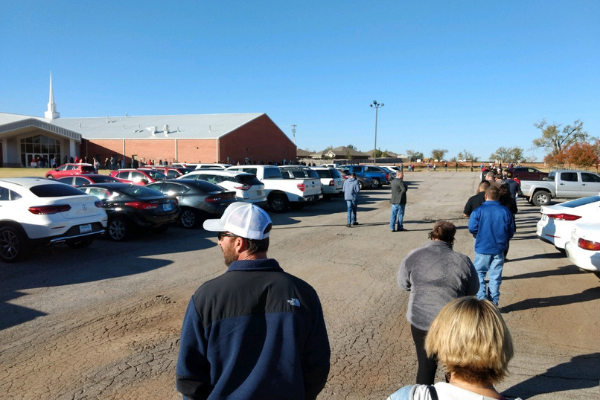By the Southwest Ledger Editorial Board
Every year Oklahoma legislators file myriad measures that richly deserve to be tossed into the nearest trashcan. But a couple of Senate bills that would alter state election laws significantly merit serious consideration.
Senate Bill 962 by Senate President Pro Tempore Greg Treat, R-Oklahoma City, would move school board elections from April to November. In odd-numbered years the elections would be held on the second Tuesday in November. In even-numbered years, school board elections would be held on the first Tuesday after the first Monday in November, to coincide with general elections.
School board primaries would be moved from February to September in an odd-numbered year, and to the fourth Tuesday of August in an even-numbered year.
The elections would remain non-partisan.
“We’re seeking to get more voter participation in these extremely important elections,” Treat said. Holding school board elections in April “has not worked.” Voter turnout is “abysmal”.
Another reason for shifting school board elections to November would be to attract more candidates. In many such elections around the state, “No one, or just one person,” files for the office, the Senate leader noted.
In other states where school board elections are aligned with the general election, voter participation is “unequivocally higher,” Treat said.
SB 962 passed the Senate overwhelmingly, 38-9, and was transmitted to the House of Representatives, where it is sponsored by Speaker Charles McCall, R-Atoka. The bill merits adoption.
Another worthy idea is proposed in Senate Bill 959, which would allow the Governor to fill a vacant U.S. Senate seat with an appointee who would serve until the next regularly scheduled general election.
To fill a U.S. Senate vacancy, the Governor would be empowered to appoint someone within 30 days of the vacancy who is a member of the same political party as the Senator who’s being replaced, and has been a registered voter in that party for the preceding five years.
The appointee would be ineligible to file as a candidate for the Senate office when it comes up for election, SB 959 stipulates.
The author of the bill, Sen. Lonnie Paxton, R-Tuttle, said his proposal would save taxpayers millions of dollars on a special election in the event of a future mid-term U.S. Senate vacancy. Paxton said he was told by the State Election Board that a special election to fill a vacant Senate seat would cost approximately $4 million.
“Allowing the governor to temporarily appoint someone to the empty seat and coordinate the special election with the next regularly scheduled general election would help avoid a nine-month void of representation, which is what it would take to run a complete special election cycle,” Paxton said. “This change is even more important right now due to the 50/50 split in the U.S. Senate.”
SB 959 passed the Oklahoma Senate by a 3-to-1 margin and is now under review in the House of Representatives. The bill is a sensible measure that would enable a Senate vacancy to be filled temporarily in a timely fashion, and would provide neither major party with an edge in the subsequent election to fill a vacancy in one of the state’s two vitally important United States Senate seats.


